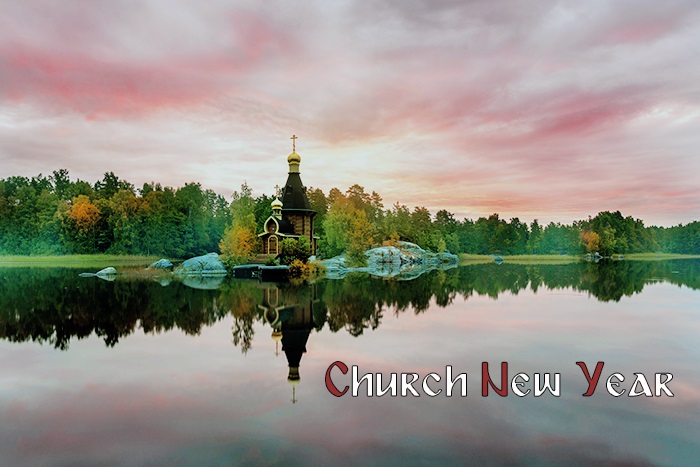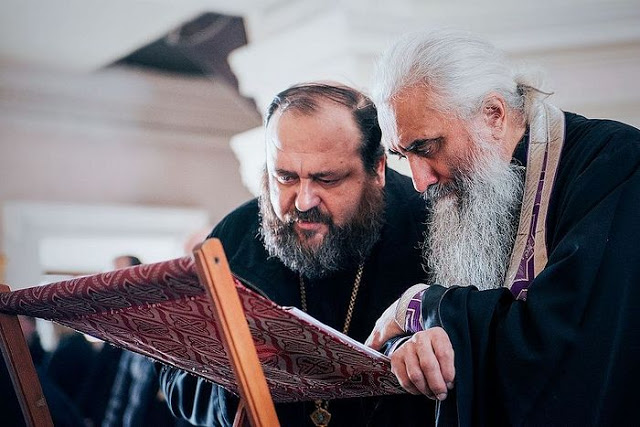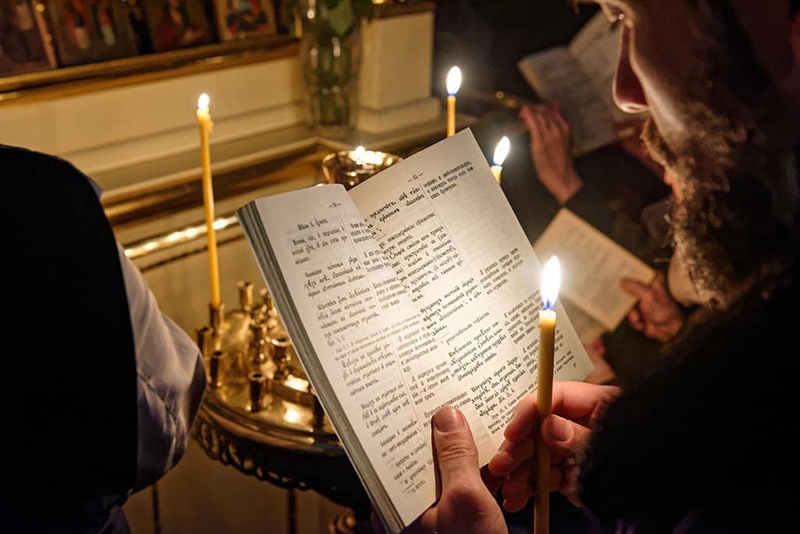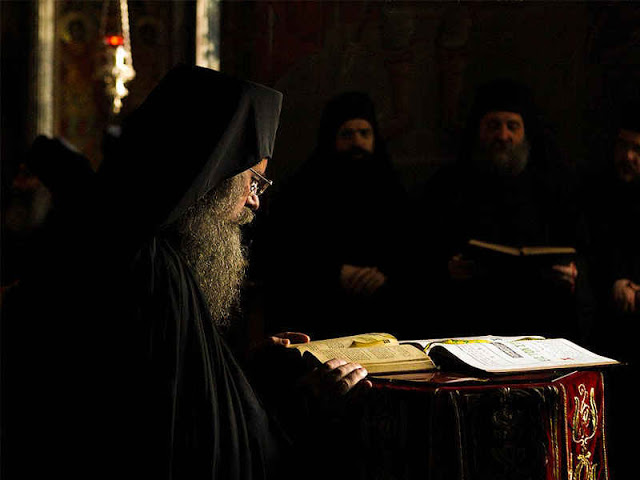
Blessed and Happy New Year! Why am I saying this greeting to you? Does not the New Year begin on January 1st? Yes, the calendar year that most people recognized throughout the year begins on January 1st. However, the Ecclesiastical or Church New Year begins on September 1st. Why is that? Well, there are several reasons including that Sept.1st was the beginning of the calendar year in Roman times. In fact, the word the Greek Orthodox use for this day, “Indiction”, is found in modern dictionaries and is still defined as “a proclamation made every 15 years in the later Roman Empire, fixing the valuation of property to be used as a basis for taxation.” Sept.1st is also the day that ancient Jewish people observed as the beginning of their civil year. Likely, this was based on September being a month of harvest and an offering of the first fruits of that harvest to God.
However, the most likely reason for the Christian New Year to begin on Sept.1st is evidenced in today’s Gospel reading from Luke 4:16-22. We hear that Jesus, after He was baptized and chrismated by John in the Jordan, and after successfully resisted Satan’s temptation in the wilderness, He comes into the synagogue on the Sabbath (v.16) and reads from the prophecy of Isaiah 61:1-2. 18 “The Spirit of the LORD is upon Me, Because He has anointed Me To preach the gospel to the poor; He has sent Me to heal the brokenhearted, To proclaim liberty to the captives And recovery of sight to the blind, To set at liberty those who are oppressed; 19 To proclaim the acceptable year of the LORD.” After reading it, he closes it, gives it back to the attendant and says to all who were gathered there: “Today this Scripture is fulfilled in your hearing.” (v.21).
What does all this mean and how does it connect to the Christian New Year? Jesus is basically saying that I am the Messiah, the Anointed One, the Christ(os); and I have come to begin My ministry. September 1st is the day on which Jesus proclaims Himself to be the Messiah and start His earthly ministry of preaching, teaching and healing that will eventually culminate in His glorious and life-giving death on the Cross and Resurrection from the dead, in which He will set free everyone from the bondage of sin and death itself. Thus, it makes sense that as soon as the early Church came out from under Roman persecution, the bishops at the First Ecumenical Council decreed that Christians begin observing Sept.1st as the beginning of the Ecclesiastical or Church New Year.
This history is articulated in one of the hymns from the Vespers service of the Feast of the Indiction:
Christ God, who once on Mount Sinai wrote the tables of the law, now too, according to the flesh, in the city of Nazareth yourself took the book of the prophet to read; and having closed it began to teach the peoples that the Scripture had been fulfilled in you.

Now, unless you come to liturgy every September 1st or pay close attention to the liturgical guidelines and commemorations, it might difficult for the average Orthodox Christian to remember the Church New Year. There are no obvious signs, icons or indications in most Orthodox temples of worship. However, in our church there are two subtle indicators. The icons of the saints that are eye level around the inside of the nave are arranged according the church year starting with September in the southeast corner and ending with August in the northeast corner. In addition, the Twelve major feast day icons that are displayed just below the choir loft are arranged September to August from left to right. Interestingly, the first major feast day of the Church Year is the Nativity of the Theotokos on September 8th and the last major feast day is the Dormition of the Theotokos on August 15th. So, the Church Year not only traces the earthly ministry of Jesus Christ but it also traces the earthly life of the Virgin Mary.
One might say, “Well this is all nice and good but what does it mean for me today as someone trying to follow Christ in my daily life?” That’s a good question and we only need to look at today’s Gospel reading more closely to find some answers. First, when Jesus went into the synagogue, it says right before that, “as His custom was” (v.16). In other words, Jesus habit or regular practice was to go to the house of worship. He was God Himself, and yet He still did what was necessary for the people His Father created and called—to know their maker and understand what it is that God wanted them to do—to discover His will for them. Second, Jesus read from the scriptures. In other words, He was not just a bystander in worship, but an active participant in the liturgical life of the believing community. Thirdly, the content of prophecy of Isaiah not only announces the ministry that Jesus the Messiah would do: including preaching the gospel, healing the brokenhearted, proclaiming freedom, giving sight to the blind, and helping the oppressed; but it announces the very same ministry that we, you and me, have been called to do.
After all, are we not members of the Church, the Body of Christ? Yes we are and as Christ’s Body we are called to do the very same things He Himself did while He lived on earth: to preach the Good News, to teach the commandments of God, to heal the sick. Whether God will perform miraculous physical healings through us or not is up to Him but at the very least we have to do all these things in order to give hope to everyone, in order to plant seeds that might blossom forth fruits of faith and belief.
So we should ask ourselves “Is it my custom and regular habit to worship and pray to God? Or do I only bother with it when convenient—when nothing else is going on? Am I intimately involved in the worship services of the Church or am I bored, disinterested bystander? Am I faithfully supporting the ministry of God’s holy Church through my sacrificial and extremely generous offering of my time, talents and treasures? Which, by the way, are not mine at all, but are God’s and belong to Him. And He’s only lending them to me to give me an opportunity to grow in faith and love towards Him and my neighbor.” Ask myself, “Who are the people in my life? Are we all rich and comfortable and insulated from the suffering of this world? Or do I regularly mingle with the poor, the brokenhearted, the captives, the blind and the oppressed?” Think about it. Blessed New Year to all! Amen!



